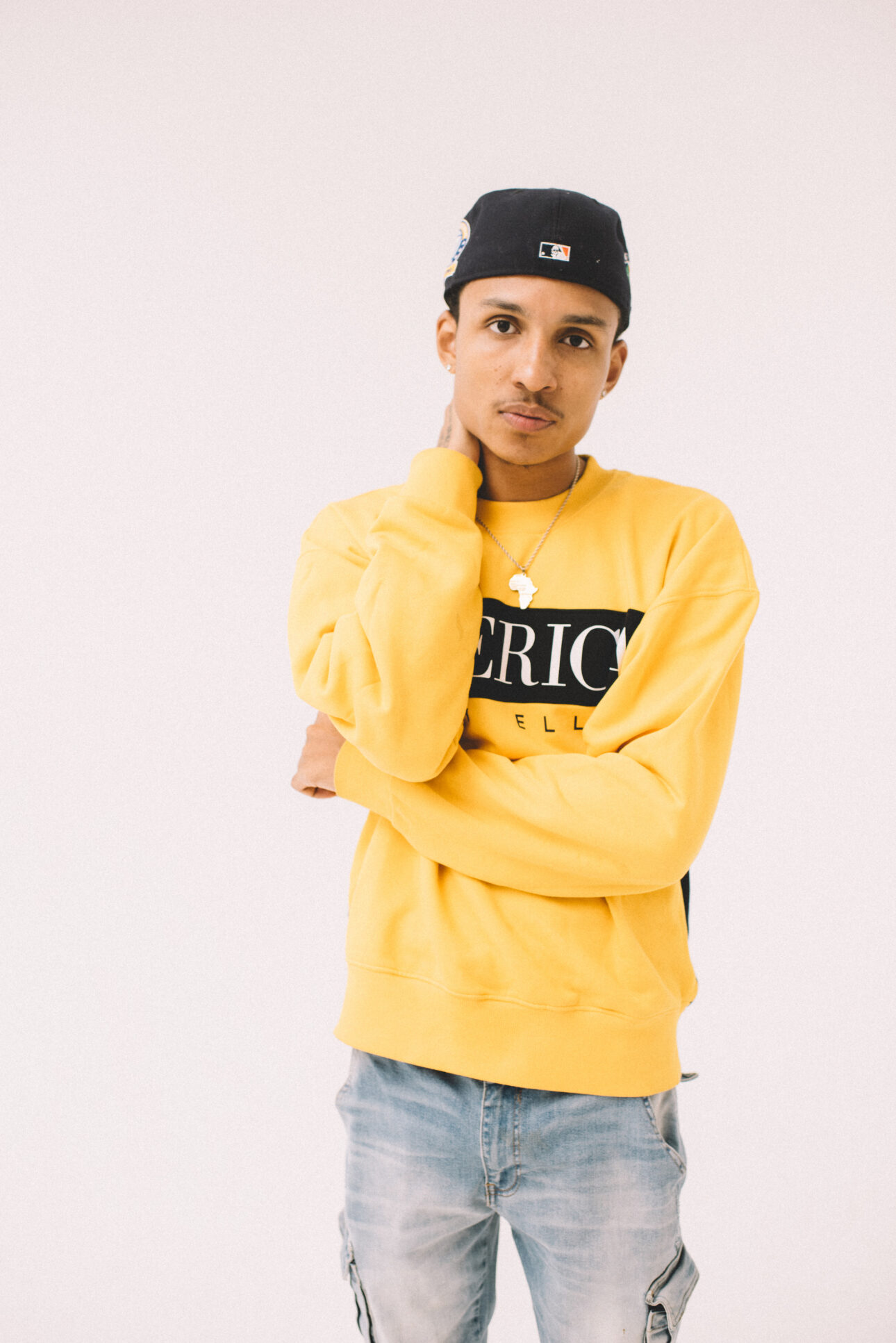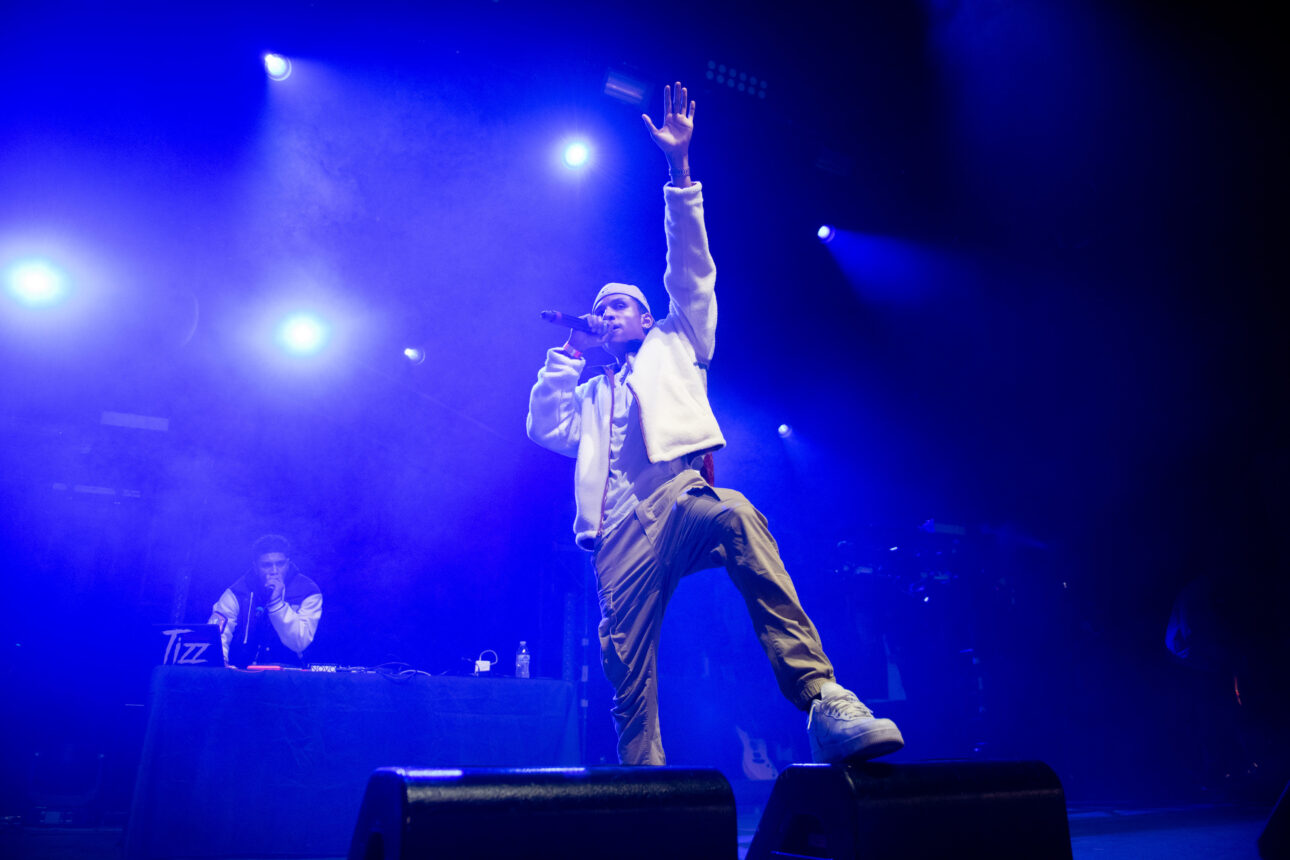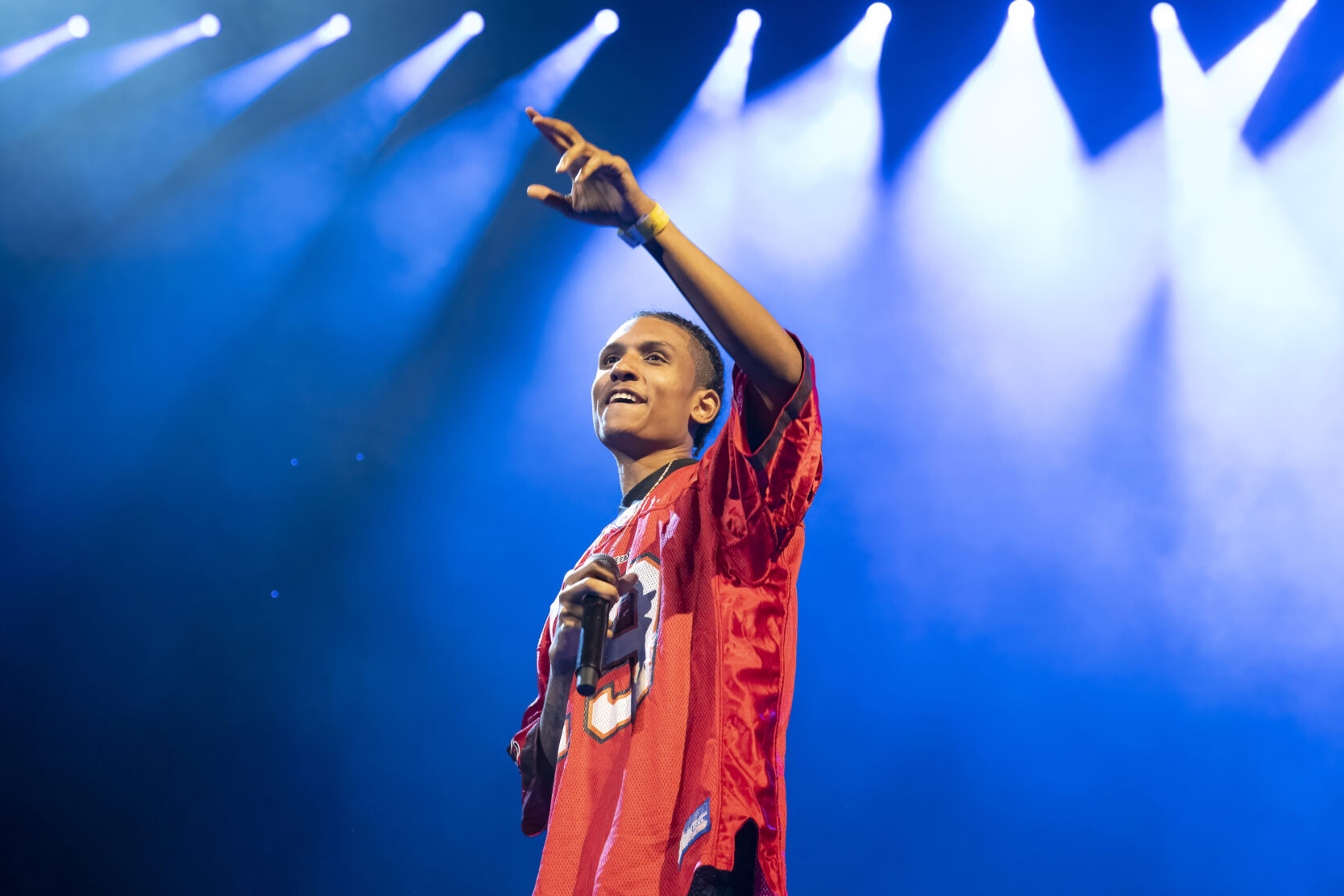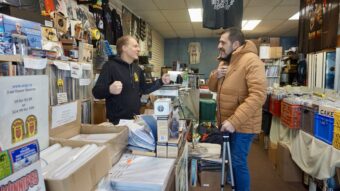There was a time when Niko Brim and his mother had nothing. To make ends meet, he took various odd jobs teaching swim lessons, walking dogs, and even selling weed. But the Mount Vernon, New York native knew he was destined for more. After pouring years of blood, sweat, and tears into his music, the blossoming rapper caught the attention of Grammy-nominated MC Rapsody, who fully recognized Brim’s innate talent. His forthcoming project, HUES Vol. 1, distinguishes itself with thoughtful lyrics, sharp delivery, and beat selection that draw comparisons to a young Kendrick Lamar or J. Cole, but he’s in a lane all his own, which took some time to embrace.
“I’ve always felt that I was unique and kind of cast to the side, feeling like the underdog,” he says. “I had a project called B4THETHRONE that talks about feeling counted out and things of that nature. It wasn’t necessarily that—it was just me being me and having to carve out my own unique path.”
With his vision fully realized, HUES Vol. 1 hits all major digital streaming platforms on March 22 and give fans the opportunity to discover all the vibrancy Brim has to offer. In an interview with SPIN, Brim walks us through his story—and how he’s harnessing the power of music.
Tell me a little bit about your household growing up. Were your parents into music?
My dad was a music executive, and he was a rapper too. When he was growing up, he was actually part of the rap group F.S. Effect. My mom is a fashion stylist, and creativity was something I always grew up around. My parents were heavy into hip-hop like A Tribe Called Quest. Mobb Deep, Biggie, Big L, Busta Rhymes, Raekwon, and Ghostface Killah, so I listened to a lot of that. Then my pops was heavy into neo-soul, so I was listening to a lot of music like [Musiq] Soulchild and D’Angelo. [There] was a lot of music. And even my grandmother was into Marvin Gaye. I listened to everything. I’m still like that to this day. I listen to everything.
How did you meet Rapsody?
I remember my mom was working. She was actually down in SoHo or something, and my mom was styling Rapsody for an event. So my mom was like, “Yo, I need a video person. Do you know a video person?” So I went down on the train to the hotel with my boy.
I was telling [Rapsody] I rap, and she was like, “If you rap, then spit something.” I started rapping for her, and then after that she was just impressed. She took my number down, and then we just started building from there. Eventually, I went out to Jamla [Records] and started working with them. Me and Rap just started cutting records and building together. Before you know it, our relationship grew really organically, and she brought me on tour. She’s been putting a lot of work with me behind the scenes, building me as an artist and always lending a hand. [She] is like my big sister. I’m appreciative of her and everything that she’s done for me.

Your album HUES Vol. 1 is such a breath of fresh air. I notice you mention your grandmother’s health on the second track, “Southside Sundayz?” How is she doing?
My grandmother is doing better, thank God. My grandmother beat breast cancer. She’s a breast cancer survivor. I’m happy that she’s doing well. That was a real personal record that I made with my boy, so yeah, Grandma’s doing better.
What kind of headspace do you need to be in to write such a personal record?
It is very personal. I feel like I just have to be still and take my time with creating the music. I never like to rush it, or I never like to look for a certain demographic or group of people. I just like to really pull what I’m feeling, work with that, and build on it. And I know in order to be in a space where I tap into that authentically, I like to keep my sessions closed so I can pull from that space.
Reading about you, it sounds like you are someone who values your privacy, but as an artist you have to be somewhat of an extrovert. How do you balance the two?
It’s definitely a juxtaposition because I want to be able to have the time to myself. My privacy and family is obviously a big thing to me, but I have to be out there consistently as an artist. I feel like there’s pockets to do it because I do like traveling. I love seeing the world. I love performing. Those are all real passions of mine for sure. But yeah, it does sometimes get a bit overwhelming—and especially with my music. It gets so personal.
You’re relatable, and when you show that side, it gives other people the courage to be vulnerable too. I think that’s the power of music.
No, absolutely. It definitely is. One of the things that always called me to music is just the opportunity to be authentic, share your perspective and who you are. And I feel that my favorite artists, that’s all that they’ve done—Rapsody, Kendrick Lamar, J. Cole, Nas, whoever you want to name—I feel that they were always pulling from a space that was true to their message, their story, and their purpose. I feel like that’s really what real hip-hop is about.

Has anyone ever told you that you are kind of on par with Kendrick Lamar? It’s a combination of the production you choose and the subject matter.
I hear Kendrick and Cole for sure, and they inspired me heavily growing up. They were the number one artists when I was in high school—[also] Meek Mill and Nipsey Hussle, Rapsody—they inspired me. I’m appreciative when people say that, but I’m definitely looking to carve out my own lane, but they inspired me 100 percent.
You’ve mentioned you feel like the black sheep among other rappers your age, but you’ve really embraced that, correct?
Yeah, for sure. I was talking about the way I handle my music and my art, being introverted and sometimes out of the way. I’ve always felt that was unique and kind of cast to the side, feeling like the underdog. B4THETHRONE talks about feeling counted out and things of that nature. It wasn’t necessarily that, it was just me being me and having to carve out my own unique path. To have somebody like Rapsody be there with me, she’s somebody who I feel exemplifies carving out your own lane in hip-hop and creating a stake for yourself.
A lot of music coming out is forgettable. Did you ever feel pressure to dumb down your music?
I definitely did think about that for some time, but I had to learn to just leave that alone. Like, there was a time where I was making music—and I wasn’t necessarily releasing it—but I noticed I was in the studio, and I was very impacted by the opinions of the world. I was just making stuff that wasn’t really resonating with me, and it didn’t feel good. And after that era, I was like, “I’m good on that.” There was no reason for me to be making music that way. With HUES coming, I really wanted to dial in on this style of music that I really wanted to make and I didn’t want to water it down. I wanted to really commit [to] the whole vision that I have for it and let the music be polarizing. Whether it really connects with you and you love it or you don’t, but either way, there’s an opinion about it. It’s not just something that’s just gonna go with the wind. Everyone was looking at me like a jack of all trades but a master of none. You have to commit to something.
How do you plan to stand out?
Just being myself really. When anybody taps into their unique ability, they’ll always stand out. I just got to stay my course and stand on my uniqueness. That’s what speaks. If you let that shine through your music and whatever medium that you’re working through, it will stand out.
What is your ultimate goal?
It would be a beautiful house that’s owned by me. It will look like a studio that’s mine to go to every day. It would look like millions and millions in my bank account. It would look like a tremendous impact on hip-hop. It would look like being one of the greatest to ever do it and to transcend my generation. It would look like traveling the world and spreading this message that is my music.




